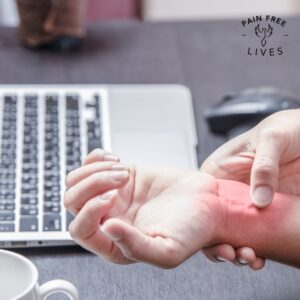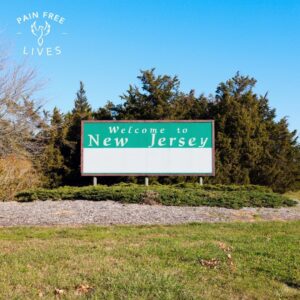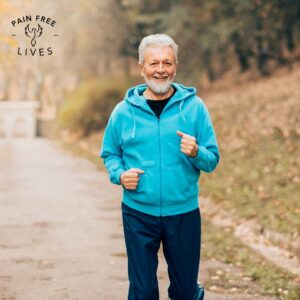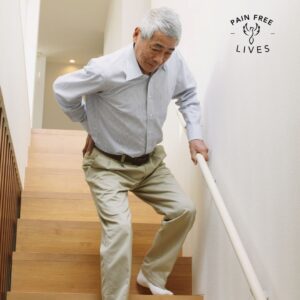Most people think of pain as purely physical as aching joints, a pulled muscle, or a strained back. But anyone who has lived with chronic pain knows it’s more complicated than that. Stress, anxiety, and emotional strain often make pain worse. This isn’t just “in your head.” Science shows that stress hormones directly amplify the way your body experiences pain. The good news is, by understanding this connection, you can take practical steps to break the cycle and regain control.
The Link Between Stress and Pain
When you face stress, whether it’s a looming deadline, financial worry, or ongoing tension, your body responds with a built-in “fight-or-flight” reaction. The adrenal glands release hormones like cortisol and adrenaline, designed to help you cope with immediate danger. In small bursts, this response is useful. But when stress becomes constant, these hormones linger at higher levels, setting the stage for pain to intensify.
Your nervous system and your pain pathways are closely intertwined. Stress hormones increase sensitivity in nerves, making the body more reactive to pain signals. A sore back feels worse on days when stress is high, and headaches last longer during periods of anxiety. In other words, stress doesn’t affect your mood, it rewires how your body perceives pain.
How Stress Hormones Amplify the Pain Experience
Cortisol and adrenaline are key players in the stress-pain cycle. When cortisol levels stay elevated for too long, inflammation rises throughout the body. Joints, muscles, and nerves become more vulnerable, making even minor aches feel unbearable. At the same time, adrenaline causes muscles to tense and tighten, which can trigger spasms or worsen existing injuries.
The brain also becomes more alert to danger during stress, magnifying every signal it receives from the body. This explains why people with chronic stress often report widespread body pain or flare-ups of old injuries. Pain and stress create a feedback loop stress makes the pain feel worse, and pain itself becomes another source of stress.
The Emotional Weight of Stress on Pain
Pain is never purely physical. When stress hormones keep the nervous system on high alert, the emotional side of pain becomes heavier. Anxiety, depression, and sleep disturbances often follow, which then increase cortisol levels further. This is why many chronic pain patients feel stuck in a vicious cycle, where mental and physical health constantly feed off one another.
It’s also why traditional painkillers sometimes don’t provide enough relief. Pills may quiet physical symptoms, but without addressing stress, the nervous system keeps firing pain signals at full volume.
Breaking the Cycle: Practical Strategies
The key to reducing stress-driven pain lies in calming the body’s hormone response. While you can’t avoid all of life’s stressors, you can train your body to react differently.
Mind-Body Practices
Simple techniques like deep breathing, meditation, and progressive muscle relaxation help lower cortisol levels. Even five minutes of slow, intentional breathing can shift the body from fight-or-flight mode into a calmer state. Over time, these practices rewire the nervous system to be less reactive to stress and pain.
Movement and Exercise
Gentle activity, such as yoga, walking, or swimming, not only reduces stress hormones but also releases endorphins, the body’s natural painkillers. Unlike high-intensity workouts, which may increase stress temporarily, low-impact exercise soothes both the mind and the body while strengthening the muscles that support joints.
Quality Sleep
Stress and pain often disrupt sleep, but poor sleep worsens both conditions. Building a bedtime routine, avoiding screens, lowering lights, and setting consistent sleep hours helps regulate cortisol levels. Rest allows the nervous system to reset, making it less likely to overreact to pain signals.
Nutrition That Calms Inflammation
Certain foods, like fatty fish, leafy greens, nuts, and berries, help fight inflammation triggered by stress. On the other hand, excess sugar, caffeine, and processed foods can spike cortisol and worsen pain sensitivity. Fueling the body wisely creates a calmer, more stable internal environment.
Professional Support
For those trapped in the stress-pain cycle, medical guidance makes a difference. At Pain Free Lives, we use both advanced treatments like regenerative medicine and interventional procedures and whole-person care approaches, including counseling and lifestyle coaching. Combining medical and stress-reduction strategies gives patients the best chance to break free.
A Real-World Example
Consider a patient with chronic back pain. On normal days, the pain is manageable. But during stressful weeks at work, the pain flares up intensely. Imaging shows no new injury, it’s the body’s stress response magnifying the pain signals. By introducing stress-reduction practices, improving sleep, and using targeted therapies to calm inflammation, the patient finds that the intensity and frequency of flare-ups start to drop. This is the hidden power of treating pain through both the body and the mind.
The Takeaway: Calming Stress to Ease Pain
Pain and stress are deeply connected. Stress hormones like cortisol and adrenaline don’t just influence how you feel emotionally; they directly impact how your body experiences pain. By addressing both sides of the equation, patients can reduce flare-ups, improve function, and reclaim control over their lives.
At Pain Free Lives, we help patients move beyond short-term fixes by targeting the root causes of pain, including the hormonal and emotional factors that often go overlooked. With the right combination of medical innovation and holistic care, the cycle of stress and pain can finally be broken.
Managing stress-driven pain often requires a holistic approach. At home, tools like weighted blankets, acupressure mats, and relaxation devices amazon.com/shop/painfreelives can lower cortisol levels, calm the nervous system, and reduce tension that fuels chronic pain. Pairing these with medical guidance helps break the stress-pain cycle more effectively.







